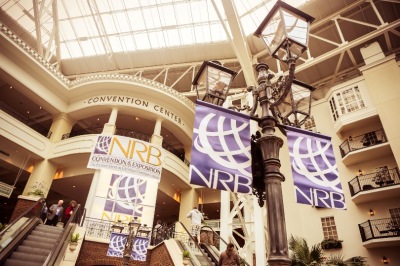NRB asks Supreme Court to stop Biden admin. from censoring views on social media

The world's largest association of Christian communicators has expressed opposition to allowing the Biden administration to collaborate with social media platforms to censor controversial views.
The National Religious Broadcasters filed an amicus brief last week in the case of Vivek H. Murthy et al v. State of Missouri et al, which centers on whether federal officials can communicate with social media sites to censor ideas they consider misinformation.
NRB asked the U.S. Supreme Court to conclude that the government "may never seek to suppress protected speech," adding that government officials cannot "legitimately construct a rule of orthodoxy on any matter of public concern."
"There is no effort by the government to contend that the speech that they sought to suppress was unprotected by the First Amendment. Nor could such a claim be taken seriously," continued the brief, written by attorney Michael Farris, the former head of the Alliance Defending Freedom and Home School Legal Defense Association.
"Here the government seeks to accomplish a form of censorship by using third party intermediaries rather than by enacting laws with direct enforcement. … It is obvious that if the government adopted laws censoring the same content, such measures would be found to be unconstitutional in the judicial equivalent of the speed it takes an email to travel from coast to coast."
In a statement Monday, NRB President & CEO Troy A. Miller said it was not the government's job to suppress free speech.
"The government may not seek to suppress the speech of any citizen — full stop," said Miller. "This includes indirect suppression of speech, like telling social media outlets, or other publishers, that they should not allow an offending message to be delivered to the public."
Last year, the Republican attorneys general of Missouri and Louisiana sued the Biden administration over allegations the federal government unlawfully worked with major social media platforms like Facebook and X to censor posts promoting conservative viewpoints or news that portrayed the Biden family in a negative light.
These censored posts included dissenting views on how to mitigate COVID-19, a theory that COVID-19 was leaked from a lab in Communist China and negative news about Hunter Biden, the president's son.
"As a direct result of these actions, there has been an unprecedented rise of censorship and suppression of free speech — including core political speech — on social-media platforms," the lawsuit argued.
"Not just fringe views, but perfectly legitimate, responsible viewpoints and speakers have been unlawfully and unconstitutionally silenced in the modern public square."
Last year, U.S. District Judge Terry Doughty, a Trump appointee, blocked federal officials from "meeting with social-media companies for the purpose of urging, encouraging, pressuring, or inducing in any manner the removal, deletion, suppression, or reduction of content containing protected free speech posted on social-media platforms."
The restrictions exempted things like "informing social-media companies of postings involving criminal activity or criminal conspiracies," "contacting and/or notifying social-media companies of national security threats, extortion, or other threats posted on its platform" and "informing social-media companies of threats that threaten the public safety or security of the United States."
Soon after, the 5th U.S. Circuit Court of Appeals issued a brief order staying the Doughty injunction against the Biden administration "until further orders of the court."
Last September, a three-judge panel of the 5th Circuit issued a per curiam opinion in which it partially upheld the injunction limiting contact between some federal officials and social media companies.
"Plaintiffs have shown a substantial risk that the injuries they suffered in the past will reoccur," read the opinion. "And there is no evidence to suggest that the government's meddling has ceased. To the contrary, the officials' attorney conceded at oral argument that they continue to be in regular contact with social-media platforms concerning content-moderation issues today."
"Because the Individual Plaintiffs have demonstrated ongoing harm from their past censorship as well as a substantial risk of future harm, they have established an injury-in-fact sufficient to support their request for injunctive relief."
The nonpartisan Foundation for Individual Rights and Expression also submitted an amicus brief asking the Supreme Court to prevent government officials from coercing or significantly encouraging private companies to censor disfavored views. FIRE was joined on the filing by the National Coalition Against Censorship and the First Amendment Lawyers Association.
"This case arose from allegations that the Biden White House and various Executive Branch agencies had inserted themselves into the content moderation decisions of social media platforms and pressured them to censor speech and particular speakers they dislike," the brief states. "But it just as easily could have been brought against the Trump Administration, which was famous for bullying internet and media companies."
"The point is, the First Amendment problems addressed in this case are significant regardless of who is attempting to pull the levers behind the scenes," the brief continues.




























